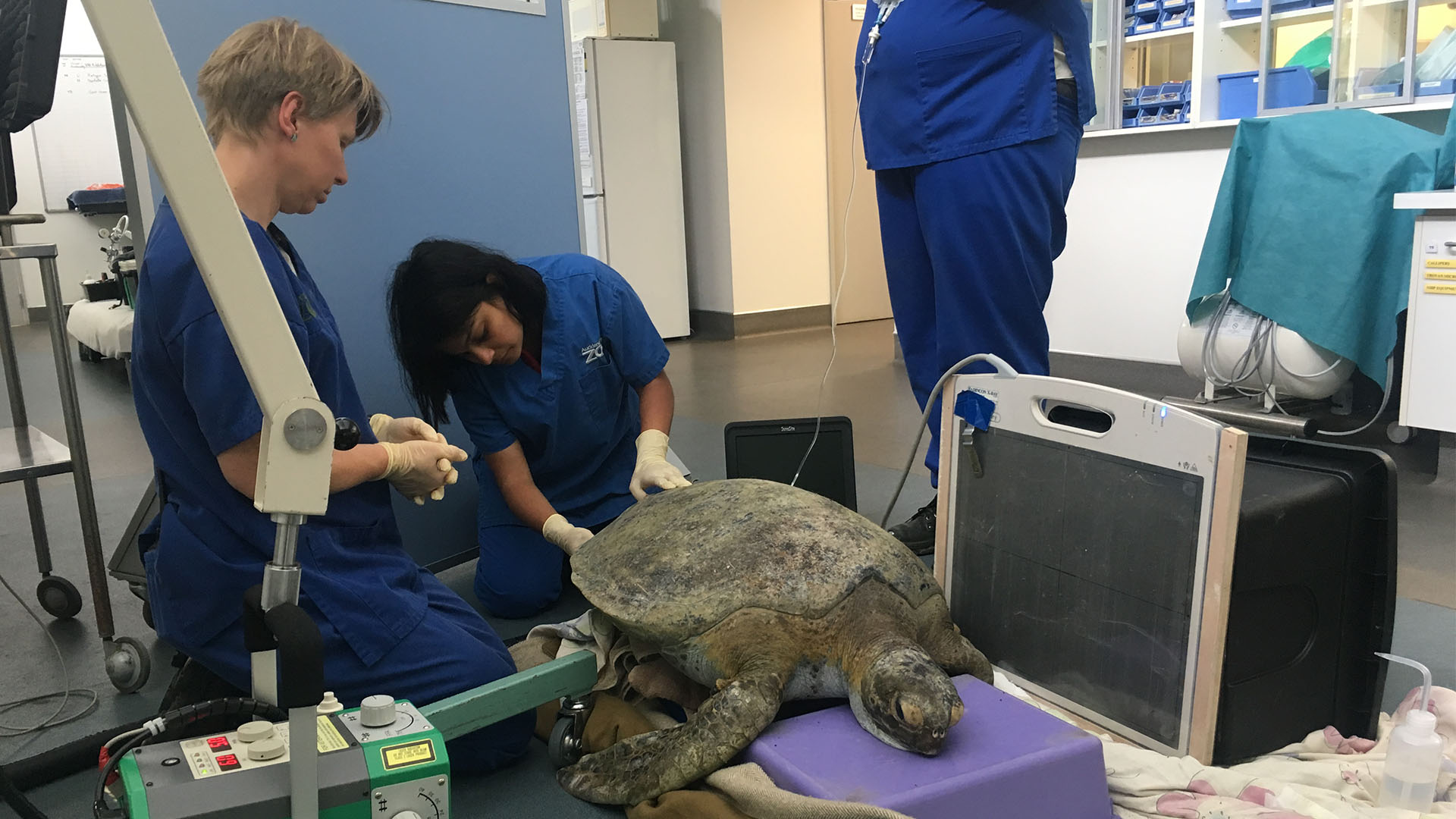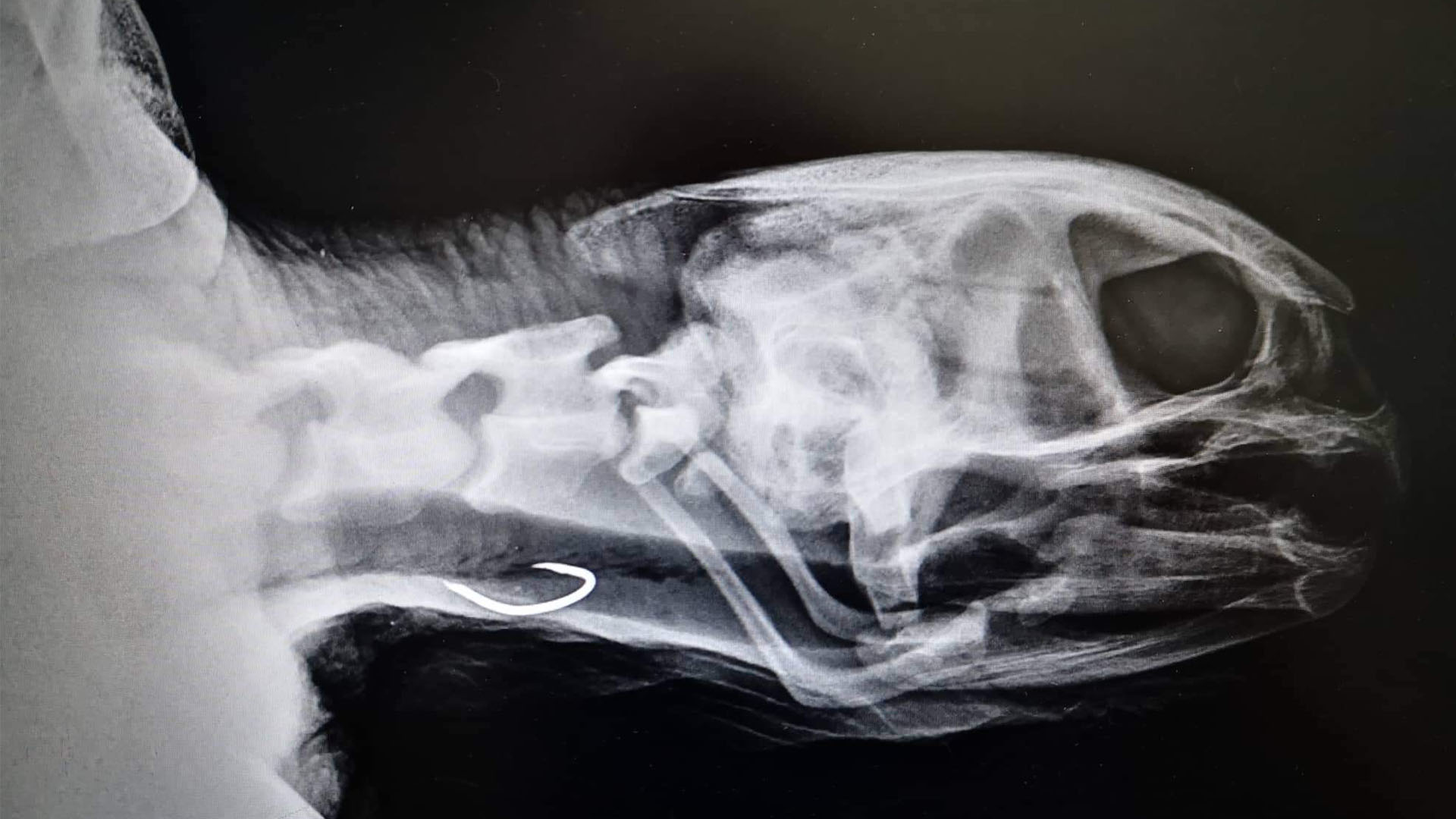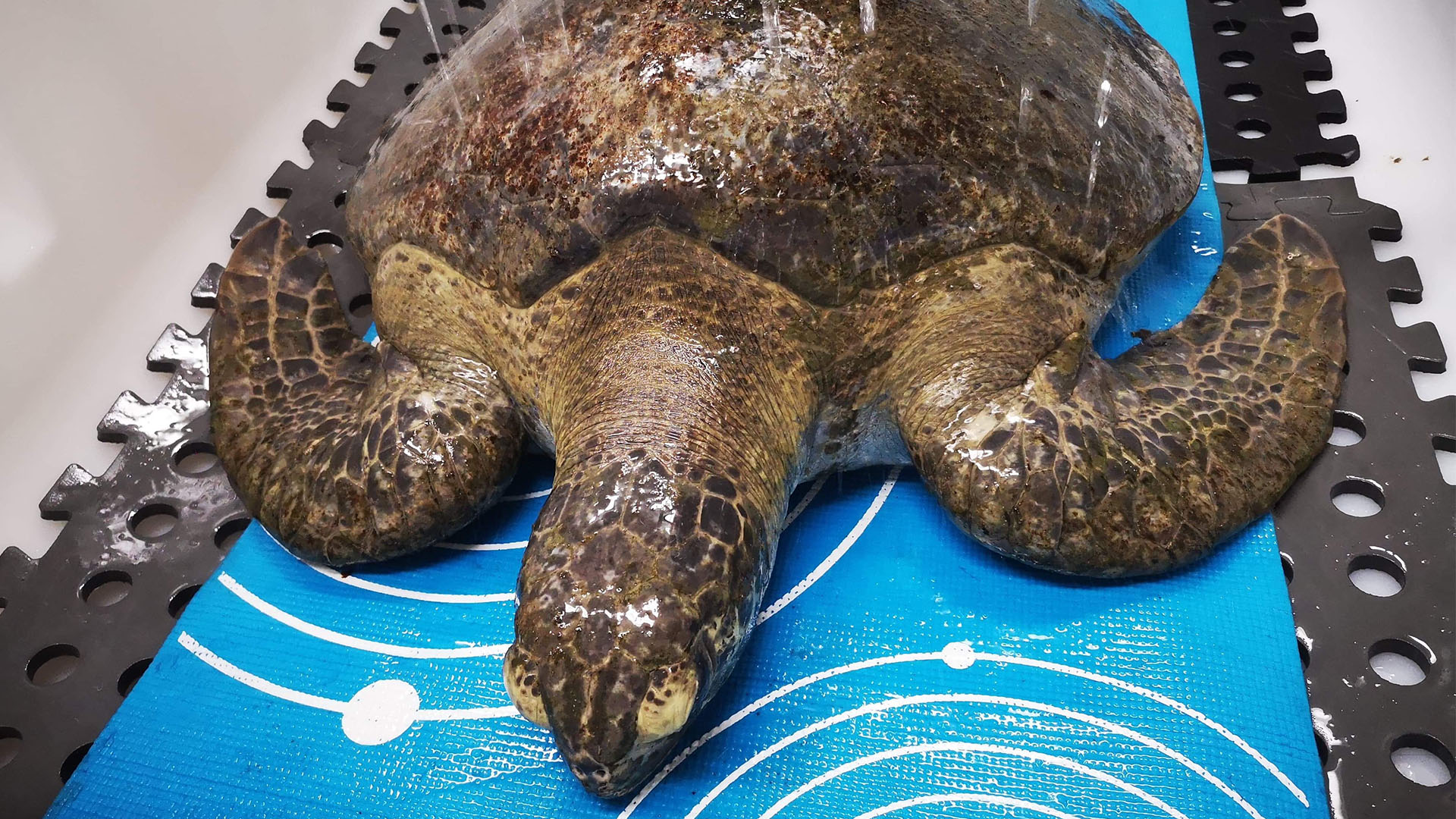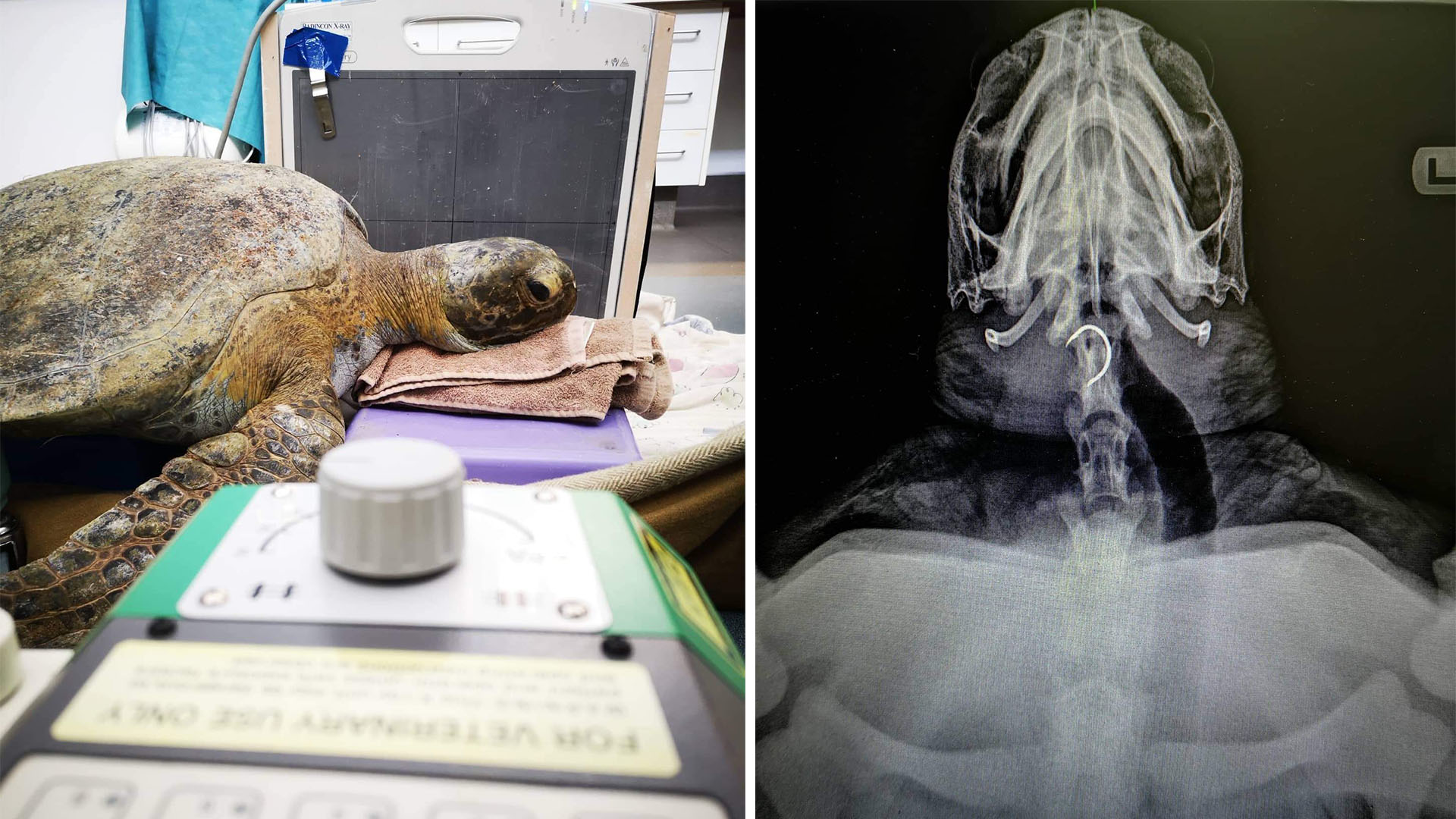When she arrived, she was emaciated and essentially comatose. Auckland Zoo veterinarian Lydia says at first, she could barely register a heart-beat so the prognosis was grave but the team rallied to do what they could for her. She was examined, blood sampled, given intra-coelomic fluids and had full-body xrays. As you can see from these X-ray images, amongst other health issues, a fishhook was firmly embedded inside her throat.
Dr Lydia says often it is the fishing line attached to the hook that actually does the most damage. It can travel all the way into the turtle’s intestines and get caught up in vital organs like the stomach and can cause the intestines to bunch up and stop functioning. A fishing line is also too thin to be picked up in an X-ray scan, so it would only be when our vets went in with an endoscope or at post mortem that they can see the extent of the problem.
When sea turtles wash up on New Zealand beaches and are found by the public they’re already extremely ill as they will fight and fight to keep swimming and stay alive. This means many sea turtle patients aren’t able to make it through the first couple of days due to their injuries.





